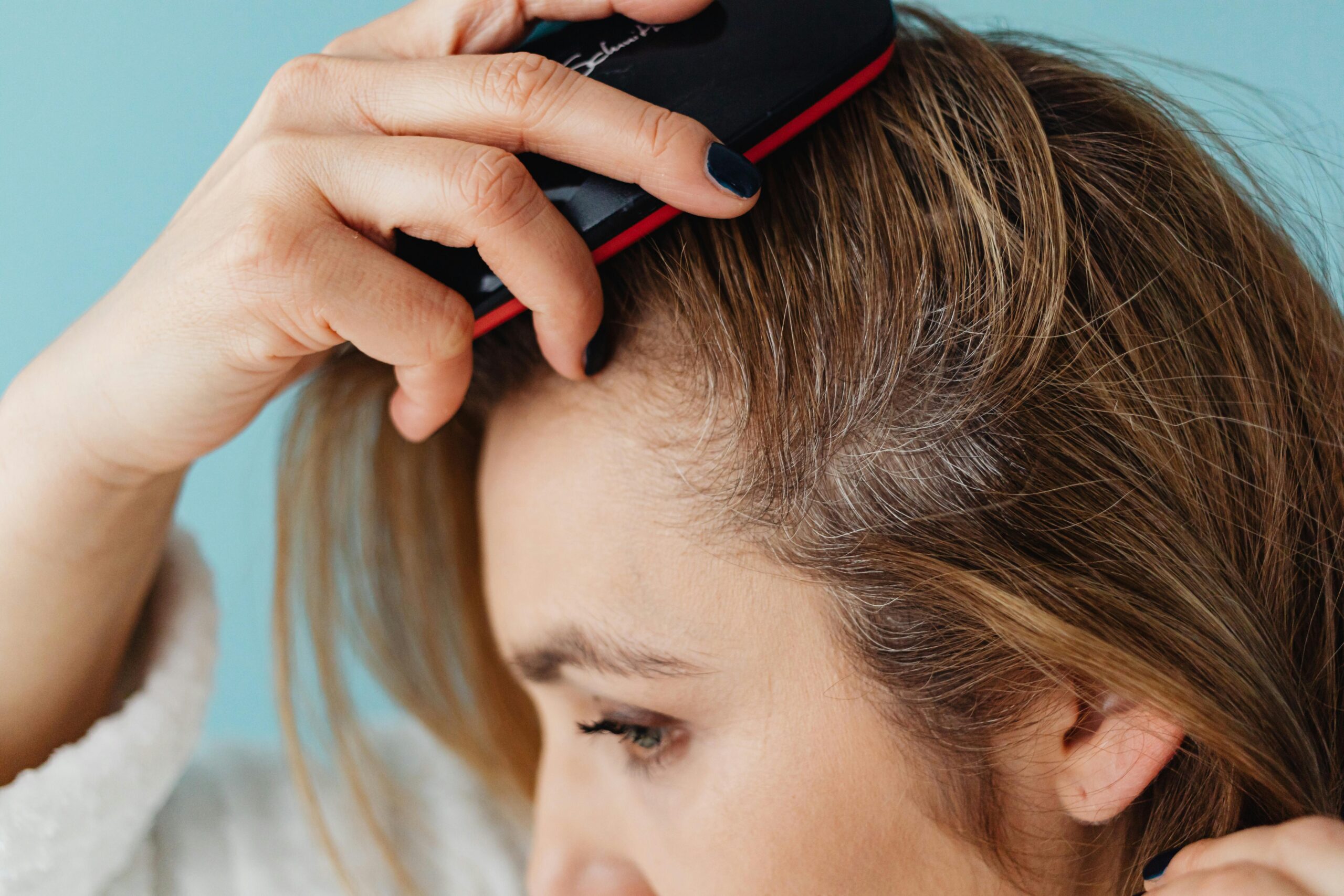Scalp psoriasis is a chronic skin condition that can cause red, scaly patches on the scalp, itching, and discomfort. While it’s not contagious, it can be challenging to manage due to its persistent nature. Fortunately, several effective ways exist to soothe irritation, reduce flare-ups, and keep your scalp healthy. Let’s explore some practical solutions for managing scalp psoriasis.
What is Scalp Psoriasis?
Scalp psoriasis occurs when skin cells multiply too quickly, leading to raised, scaly patches. These patches can appear along the hairline, on the back of the neck, and even behind the ears. Symptoms may include itching, flaking, and cracked or bleeding skin in severe cases.
Though there is no cure for scalp psoriasis, treatments can help alleviate symptoms and reduce flare-ups. Consistency and patience are key to managing this condition effectively.
Effective Scalp Psoriasis Solutions
1. Use Medicated Shampoos
Medicated shampoos are one of the first lines of defence against scalp psoriasis. Look for shampoos containing ingredients like coal tar, salicylic acid, or ketoconazole. These help reduce scaling, relieve itching, and slow skin cell production.
- Coal Tar: Reduces inflammation and scaling.
- Salicylic Acid: Helps soften and remove scales.
- Ketoconazole: Treats fungal infections that can worsen psoriasis.
Use medicated shampoos as directed, alternating with gentle, sulfate-free shampoos to avoid over-drying your scalp.
2. Try Topical Treatments
Topical treatments, such as corticosteroid creams, calcipotriene (a vitamin D derivative), and tazarotene, can target specific areas of inflammation. These treatments reduce redness, slow down cell turnover, and soothe itching.
Consult a dermatologist to determine which topical treatment is best for your scalp and how often to use it.
3. Moisturize Regularly
Keeping your scalp moisturized is essential to manage dryness and flaking. Use lightweight, non-greasy moisturizers or scalp oils designed for sensitive skin. Ingredients like aloe vera, jojoba oil, and coconut oil can provide hydration and soothe irritation.
Avoid heavy products that may clog pores or worsen the condition.
4. Practice Gentle Hair Care
Your hair care routine plays a vital role in managing scalp psoriasis. Avoid scratching your scalp, as this can cause open wounds and increase the risk of infection. Use a soft-bristle brush or wide-tooth comb to minimize irritation.
When washing your hair, use lukewarm water instead of hot water, which can strip the scalp of moisture.
5. Consider Light Therapy
Light therapy, or phototherapy, involves exposing the scalp to ultraviolet (UV) light under medical supervision. This treatment slows down skin cell production and reduces inflammation.
UVB light is commonly used, either through handheld devices or specialized lamps. Always consult a dermatologist before starting light therapy to ensure it suits your condition.
6. Manage Stress Levels
Stress is a well-known trigger for psoriasis flare-ups. Incorporate stress management techniques into your daily routine, such as meditation, yoga, or deep breathing exercises. Regular physical activity and quality sleep also help reduce stress and improve overall well-being.
7. Adjust Your Diet
Though there’s no specific “psoriasis diet,” some foods may help reduce inflammation. Include more anti-inflammatory foods like fatty fish (rich in omega-3 fatty acids), leafy greens, and berries. Limit processed foods, sugar, and alcohol, which can trigger flare-ups for some people.
When to See a Dermatologist
If over-the-counter solutions don’t provide relief, or if your symptoms worsen, it’s time to consult a dermatologist. Prescription treatments, such as stronger topical medications, oral drugs, or biologics, may be necessary for more severe cases.
Dermatologists can also provide tailored advice and monitor your progress to ensure you use the most effective treatment plan.
Conclusion
Managing scalp psoriasis requires a combination of effective treatments, lifestyle adjustments, and patience. From medicated shampoos to light therapy and stress management, numerous ways exist to soothe flare-ups and improve scalp health. Consistency is key, and consulting a dermatologist can further enhance your results.
Frequently Asked Questions (FAQs)
1. Can scalp psoriasis lead to hair loss?
Scalp psoriasis itself doesn’t cause permanent hair loss. However, excessive scratching, harsh treatments, or severe inflammation can lead to temporary hair shedding. Gentle care is crucial to prevent this.
2. How long does it take to see results from treatment?
Results vary depending on the treatment. Some medicated shampoos may improve within a few weeks, while more advanced treatments, like biologics, may take longer. Consistency is key.
3. Is scalp psoriasis contagious?
No, scalp psoriasis is not contagious. It is an autoimmune condition that cannot spread to others through contact.
4. Can natural remedies help with scalp psoriasis?
Natural remedies like aloe vera, coconut oil, and oatmeal can temporarily relieve mild symptoms. However, they are not substitutes for medical treatments. Consult a dermatologist for severe cases.
5. Should I avoid coloring my hair if I have scalp psoriasis?
Hair coloring is possible but should be done cautiously. Opt for gentle, ammonia-free dyes and avoid coloring your hair during flare-ups. Always do a patch test before applying any product to your scalp.



